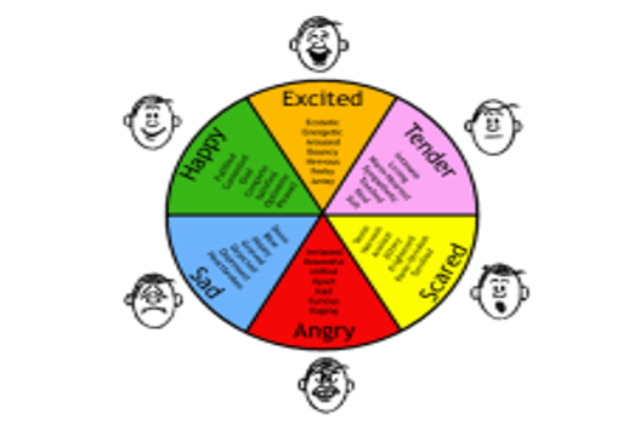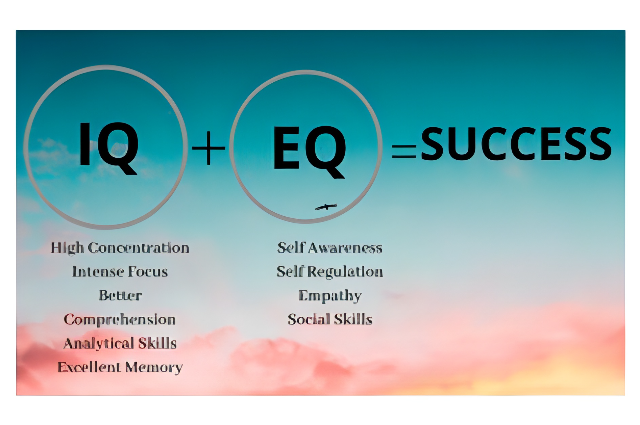
Capacity to perceive one’s emotions
There is a notable saying,
“Magic comes alive when Intelligence is combined with emotions”.It is possible to believe that emotions have no bearing on intelligence. However, that is the most important part of organizational success. In layman's words, Emotional Intelligence (EI) is a person's capacity to manage and control their emotions, as well as the emotions of those around them. We'll talk about the relevance of emotional intelligence in this article.
For the following reasons, it is just as vital to have experience and talents as it is to have emotional intelligence in order to maintain one's leadership role:
- Emotional intelligence allows you to relate to others in a more effective and efficient manner.
- It also allows you to control your emotions and have thoughtful conversations. Ensures that leaders are capable of active listening.
- Develops a leader's ability to accept criticism positively.
- It necessitates the need to admit and learn from mistakes, reducing the organization's major ego issues
- It aids in remaining calm even when under duress.
- EI should be a prerequisite in hiring and promotion, according to one-third of hiring managers.
- EI is more significant than IQ (Intelligence Quotient) since a person with good craftsmanship but no understanding of his team's problems can wind up creating problems.
Emotional Intelligence Factors
Daniel Goleman, a well-known psychologist, outlines five key components of emotional intelligence in his book "Emotional Intelligence: Why it Can Matter More Than IQ."
1. Self-Awareness: This is the ability to understand oneself, particularly one's strengths and flaws. This teaches a person how to respond to various persons and situations that may happen in the job. People who are self-aware are usually also self-confident. Stepping outside of one's comfort zone is the only way to develop one's self-awareness.
2. Self-Regulation: It is the art of managing one's emotions in order to regulate and control them. To achieve favourable results, it is also necessary to manage one's ideas, emotions, and conduct.
3. Social Skills: A person with a high EI is always concerned about others and gets along well with everyone.
4. Motivation: People with a high EI are more hopeful and upbeat in their outlook. As a result, they are highly motivated. They are also more adaptable in their profession and capable of dealing with any situation.
5. Empathy: Everyone in the workplace, especially those in leadership positions, needs empathy. To ensure that there is a healthy mutual relationship between the employees, it is critical to put oneself in the shoes of the other.
What is the Significance of Emotional Intelligence?

Nobody cares how much you know until they realise how much you care.
Emotions are a part of what it means to be human, and the EI quotient is at the centre of what it means to be human. EI assists people in caring for themselves as well as the well-being of others. People that are emotionally intelligent have the potential to inspire and lead others. As a result, they will have solid connections while also being successful at work. In our personal lives as well.
What is the Distinction between IQ and EQ?
Intelligence Quotient (IQ)
We've all heard this term since elementary school. It is a test of one's intelligence. It is the result of numerous standardised examinations designed to assess IQ. They have a strong ability to form mental connections and prefer to think in a very abstract manner.
Quotient of Emotional Intelligence (EQ)
It refers to a person's capacity to manage and control their emotions. And to be able to control the emotions of others. It is the most important talent to acquire in order to be successful in both one's personal life and one's professional life.
Thus, EQ is more important than IQ because, while intelligence is vital, it is equally important to know how to handle emotions, especially in the workplace.
Why is Emotional Intelligence Quotient (EQ) essential in the Workplace?

- To be self-assured and accept yourself for who you are.
- To be self-assured enough to say what you need to say when you need to say it.
- To have a social duty in order to ensure the organization's long-term viability.
- To be able to regulate one's impulses and delay or oppose them.
- To be flexible in order to be willing to work for the welfare of others and to be able to adjust quickly to changing expectations and conditions.
- To be able to work within your skillset.
- To develop good relationships with employees and to deal with the day-to-day issues that arise at work.
Recruitment and EQ
Employees are hired based on their IQ and Emotional Intelligence Quotient (EQ). Although there are numerous psychometric tests available to determine one's EQ, most employers prefer to assess it in person because it is more practical.
Now that we've established what emotional intelligence is and why it's important, let's look at ways to develop one's EQ.
What Can You Do to Boost Your Emotional Intelligence?
Let's take a more practical and pragmatic approach to this.
Emotional Intelligence can be improved in seven ways:
- Examine Your Emotions: This necessitates self-awareness. Because when a person is conscious of his or her emotions, they will be able to regulate them.
- Take a Breath: It's critical to develop the habit of thinking twice before saying or doing something. This could be beneficial in managing our emotions at work.
- Understand the "Why" to Become More Empathetic: Understanding the other person's feelings is critical, as is attempting to answer the "why" issue underlying their emotional behavior.
- Get a Different Point of View: What we perceive may not always be accurate. As a result, it's critical to get feedback from others regarding our emotional conduct at work.
- Monitor: A person who has a high level of self-awareness must be able to observe their own feelings.
- Practice, Practice, Practice: Practice makes perfect, as the adage says. It is necessary to exercise emotional intelligence in order to understand its significance. This is feasible if we endeavour to maintain emotional control in all situations by being patient.
- Decide to Learn from Criticism: Isn't it self-evident that no one wants to be criticised? However, because of our ego, we occasionally lose out on constructive feedback. When we accept criticism in the appropriate manner, we will be able to improve as employees and as beings.
More ways to improve our emotional intelligence include:
- having an effective resolve.
- To maintain a good attitude.
- Keep nonverbal communication in mind.
- Reduce your stress levels.
- To stay in touch with your feelings.
